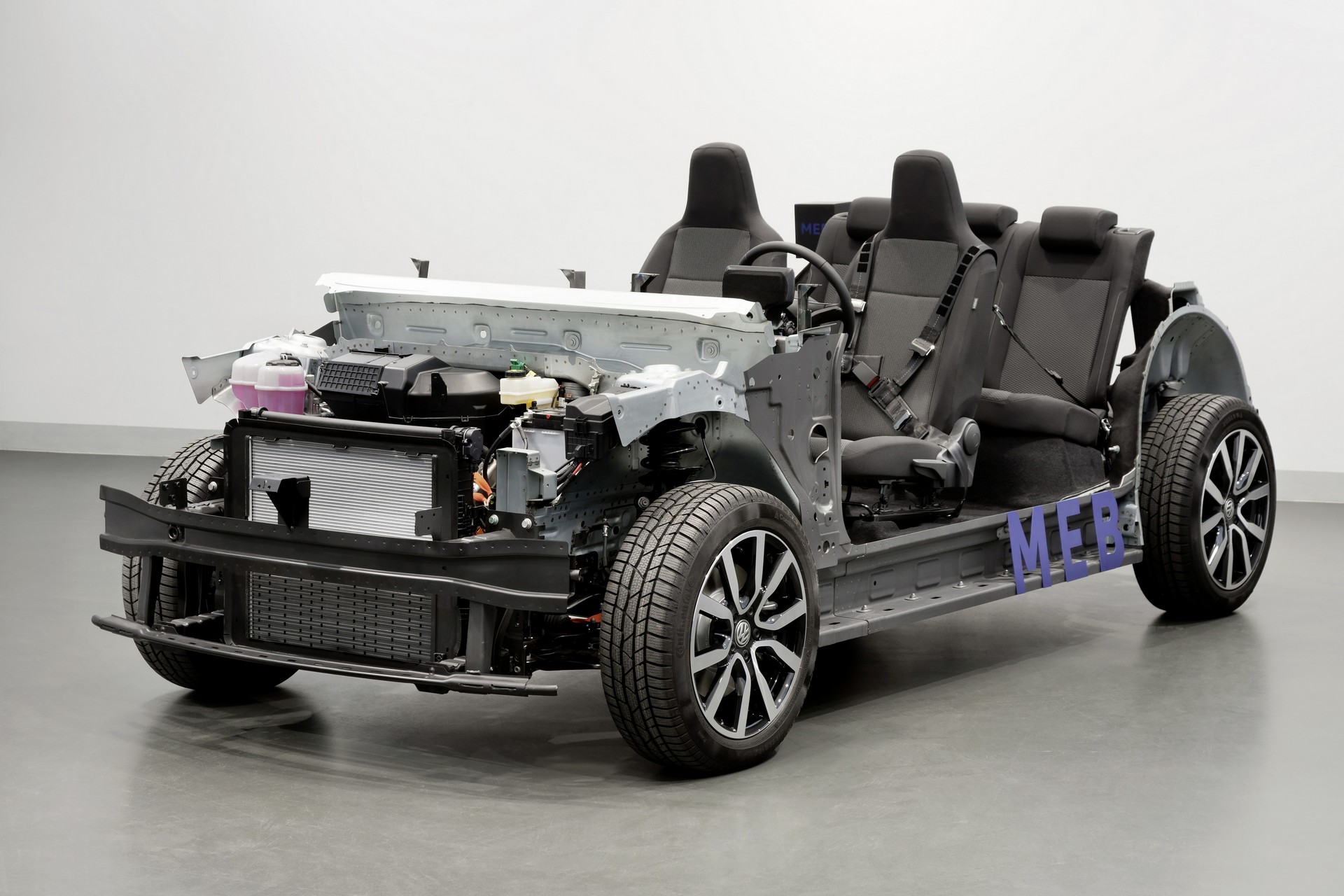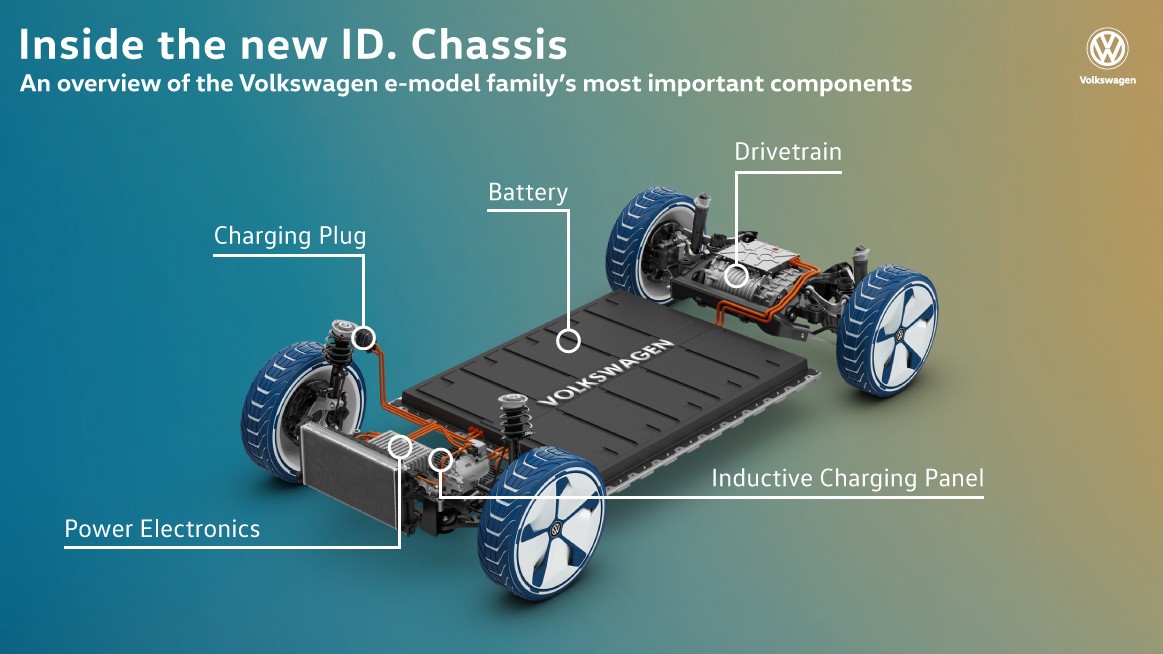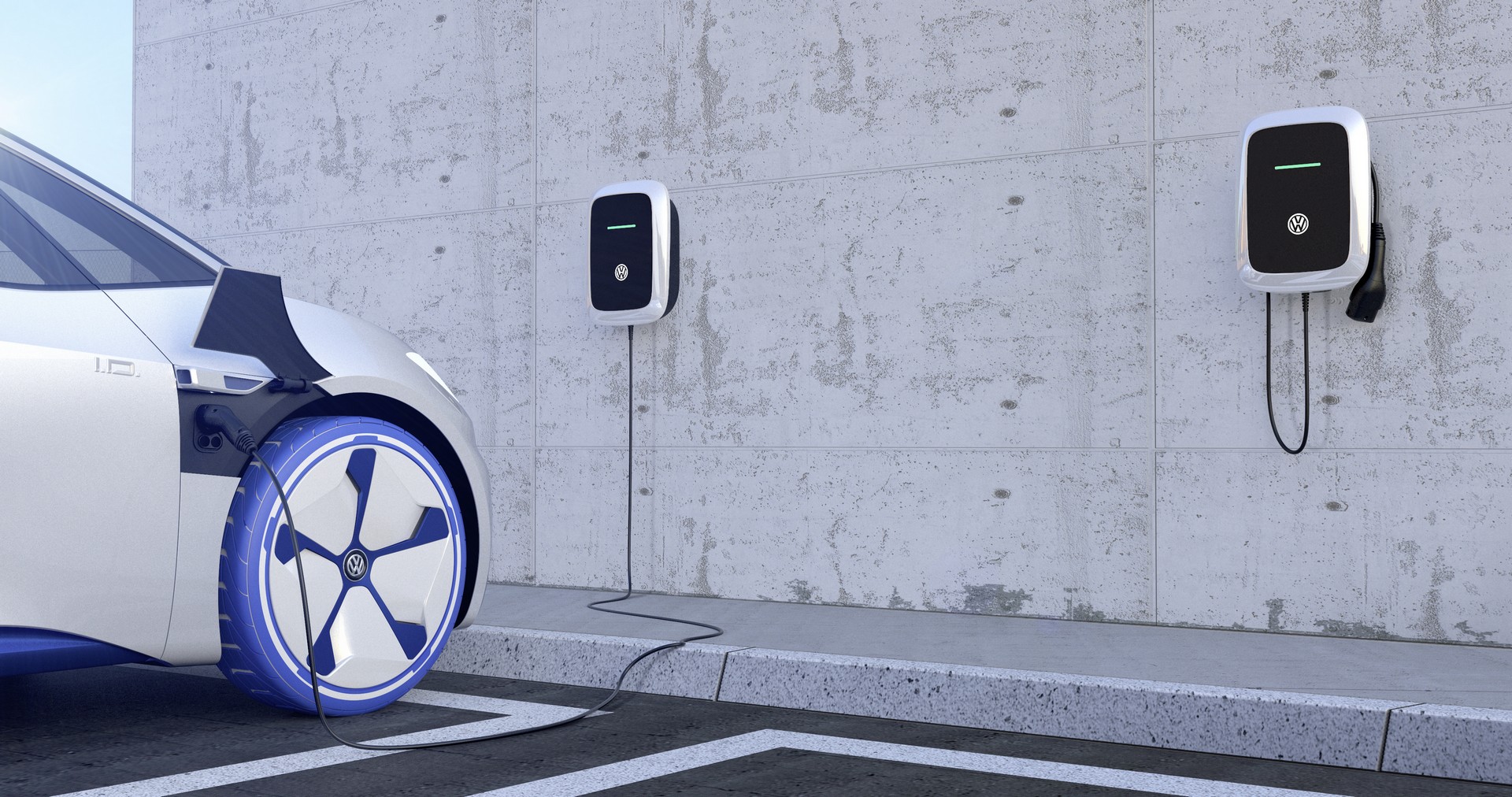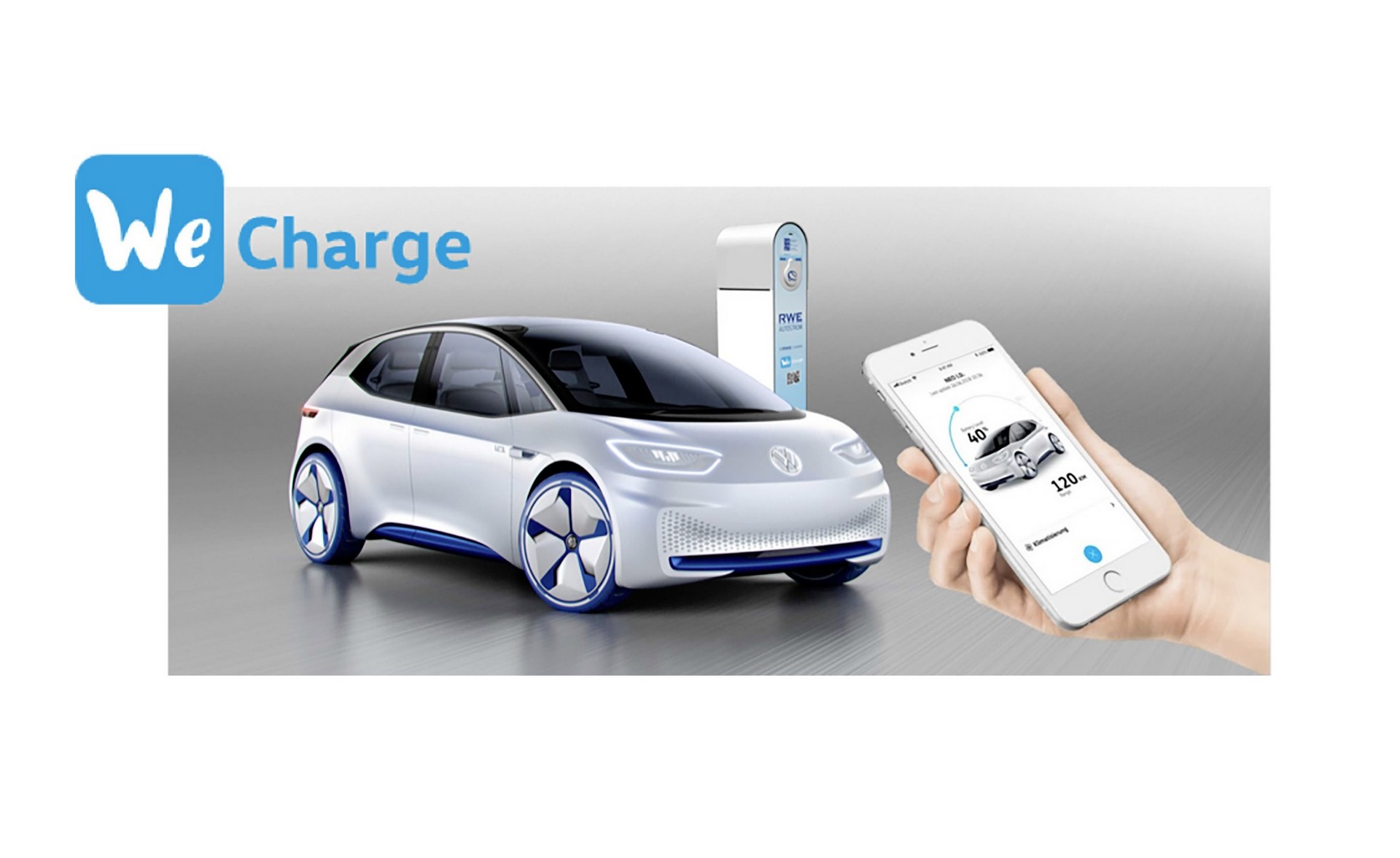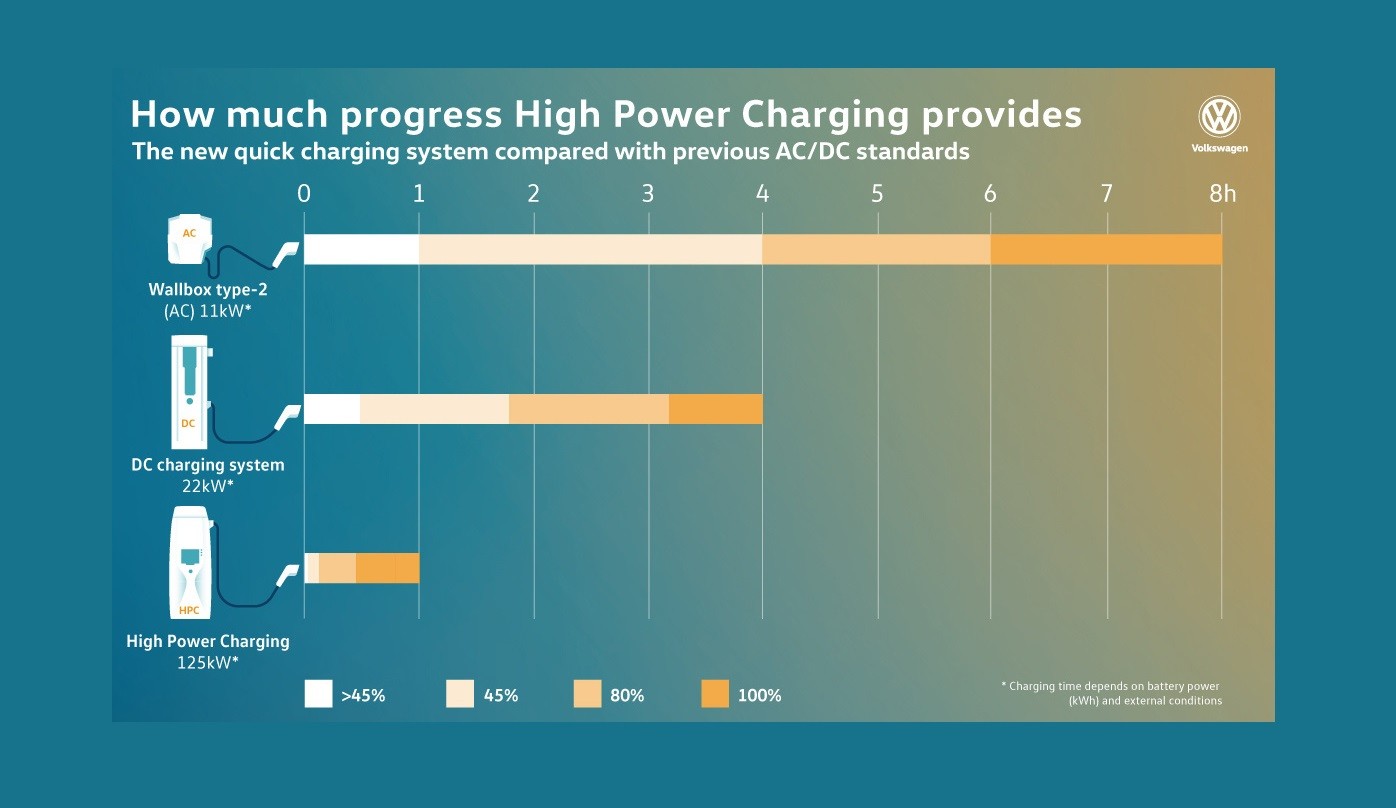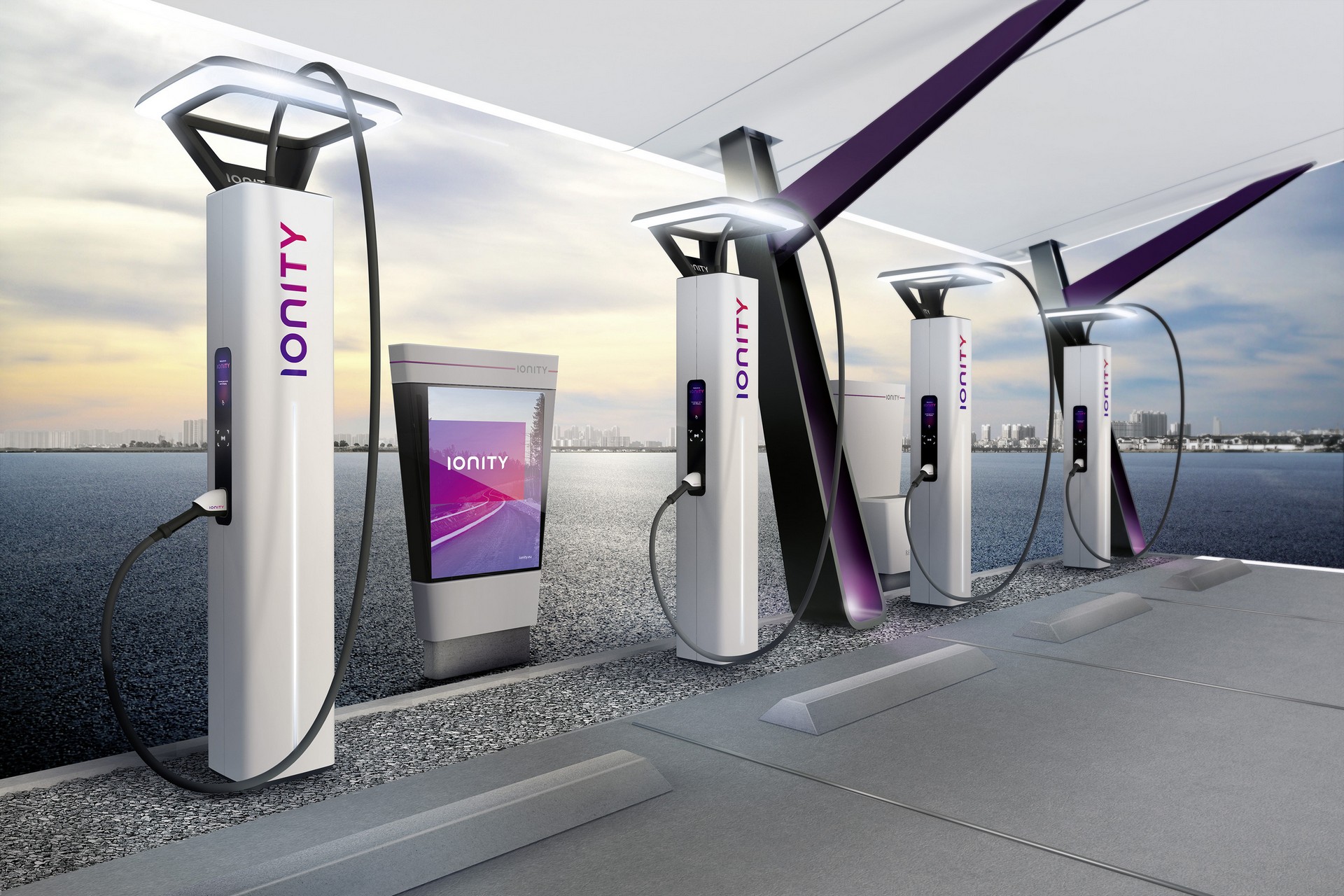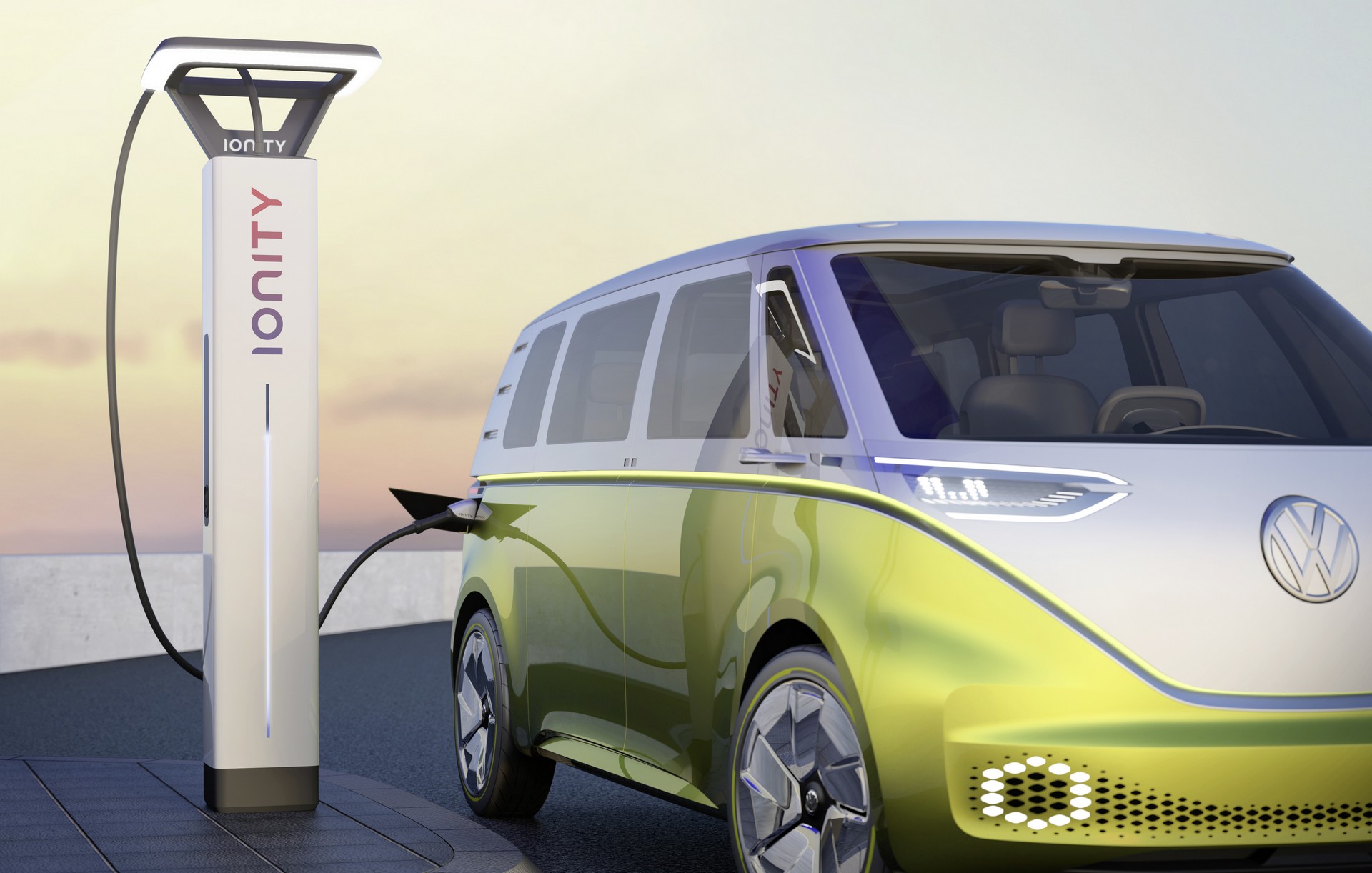Volkswagen is gearing up to launch an assortment of electric vehicles, with the first model slated to arrive in 2020.
Noting that sales of electric vehicles have climbed 60 percent in the past year, Volkswagen’s E-Mobility boss, Thomas Ulbrich, says the company expects to sell as many as 150,000 electric vehicles as early as 2020. Ulbrich went on to say the ID hatchback and ID Crossover will account for 100,000 of these sales. By 2025, the automaker expects sales to exceed one million units.
Volkswagen went on to say the production versions of the ID, I.D. CROZZ, I.D. BUZZ and I.D. VIZZION concepts are “virtually complete” in terms of design and development. It added that it has already signed contracts with battery suppliers and is investing more than $1.1 (€1) billion to prepare its Zwickau plant for the production of vehicles based on the MEB architecture.
Speaking of the MEB architecture, Volkswagen confirmed the purpose-built electric platform will underpin models from companies such as Audi, Seat, Skoda and Volkswagen Commercial Vehicles. The platform is highly flexible and the various models built on the architecture can have different wheelbases as well as unique body overhangs. The platform can also be used on underpin everything, from compact cars to SUVs and MPVs.
For the ID family, the electric powertrain “primarily consists of an electric motor integrated into the rear axle with power electronics and a transmission.” The battery pack is installed underneath the floor, while all-wheel drive variants will feature an additional electric motor up front.
Volkswagen didn’t go into too many specifications, but noted the ID concept had a 168 hp (125 kW / 170 PS) electric motor which enabled the hatchback to accelerate from 0-62 mph (0-100 km/h) in less than eight seconds. The company went on to say that electric motors with either more or less power could be considered for the 2020 production version.
While Volkswagen wasn’t ready to talk about performance specifications, the company confirmed the ID family will have a modular battery pack which will allow for ranges between 200 miles (321 km) and 340+ miles (547 km), according to the Worldwide Harmonized Light Vehicles Test Procedure (WHLT) standards.
They also suggested the ID family will be offered with multiple battery packs in each model. As the company explained, customers who only primarily use their vehicle in the city “can opt for a battery with a lower energy yield.” The smaller battery pack promises to make the vehicle more affordable than versions which are designed to travel longer distances.
Furthermore, the ID family will have a charging capacity of up to 125 kW, which the company claims is something that, so far, has not achieved been achieved by mass-production EVs. Using one of these quick-charging stations will enable the battery pack to be fully replenished in approximately 30 minutes.
However, Volkswagen expects a majority of charging will occur at home. As a result, the company will offer an assortment of charging wall boxes, which will start at around $350 (£268 / €303). They will have a charging rate of up to 11 kW – enough to fully recharge an EV battery overnight.
The company will also offer a bidirectional 22 kW wall box. This enables electric vehicles to recharged as well as send energy back to the electric grid when needed.
While there has been a lot of debate over whether or not the electric grid can handle an onslaught of electric vehicles, Volkswagen says it shouldn’t be an issue. One million electric vehicles would consume approximately 2.4 TWh of power every year; in Germany, the annual energy consumption is 517 TWh, so adding one million EVs would only cause a 0.5 percent increase in demand.
Getting back to the vehicles themselves, the ID family will come with a new electronics architecture called E3 that will feature a more powerful processor with a new vw.OS operating system able to receive over-the-air updates. VW says this will enable the company to keep the vehicles up-to-date during their entire life cycle.









